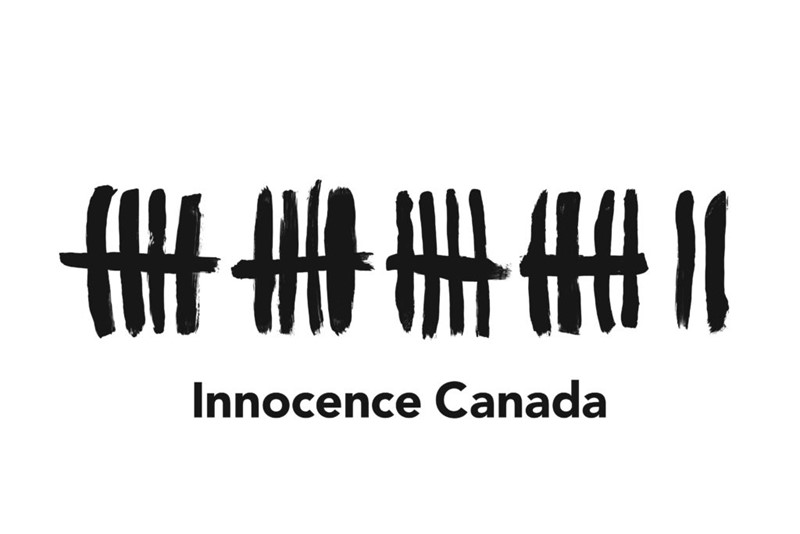
TORONTO: The answer to the question of who killed Christine Jessop is now known, leaving one thing missing in this 36-year-old tale of deceit, folly and botched opportunities - official accountability.
Innocence Canada (IC) is therefore calling for an independent review into how both the Durham Regional Police and Toronto Police Service (TPS) failed to long ago detect and investigate the killer, Calvin Hooper, as a viable suspect.
From 1985 to 1995, the case resided with the Durham force. Upon Guy Paul Morin being exonerated and acquitted of the killing in 1995, Toronto Police took over and assigned nine officers to the Christine Jessop Task Force in order to investigate the case with fresh eyes. Having failed in this mission, the task force was disbanded in 1998.
The case was finally solved ten days ago, when TPS cold case investigators, acting on information from forensic DNA testing by US crime labs, identified the killer as Calvin Hoover, a Jessop family friend at the time of the sex-slaying.
As the country's leading advocate for the wrongly convicted, Innocence Canada believes that invaluable lessons can and must be extracted from this 36-year debacle to provide guidance to future investigations and to forever underline the importance of rigorously adhering to elementary, methodical investigative steps.
As a person within the Jessop family's social circle, Calvin Hoover ought to have identified early on as someone else deserving of close police scrutiny. The failure to home in on him and closely examine his alibi for the day of Christine's abduction, October 3, 1884, has led to decades of indescribable agony for Mr. Morin and his family, and for the Jessop family.
These failures also provided a sadistic pedophile with the freedom to commit other crimes and, ultimately, to take his own life in 2015 without ever having been brought to justice. It remains unknown what other crimes he may have committed between 1984 and 2015.
"Tens of millions of dollars were sunk into two murder trials and appeals, and the year-long Kaufman public inquiry into the Morin wrongful conviction," said IC co-president Kirk Makin. "To now stint on a carefully targeted review of police failures would be a mockery of all this expense and the human misery caused by this awful case."
Such a review would in no way duplicate the 1996 Kaufman public inquiry, Makin said. It need not involve public hearings, nor would it examine a host of other events and mistakes that have been painstakingly cataloged by Justice Kaufman.
"We are dependent on the press and political leaders to apply pressure to authorities who would much prefer to sweep their mistakes under the rug," Makin said. "That simply cannot be allowed to happen."
As was the case with the Kaufman inquiry, funding and structure would be the responsibility of the Ontario Ministry of the Attorney-General.
Several models can be envisioned that would result in a relatively speedy, cost-efficient review. These include the appointment of a key figure who already has a firm grasp on the case - such as inquiry commissioner Fred Kaufman or Kaufman commission counsel Mark Sandler. Alternatively, the province could select a retired judge or senior police figure from an outside force.
An example of the kind of targeted review IC envisions was launched recently in the Nova Scotia wrongful conviction case of Glen Assoun. The Independent Investigations Office of BC has agreed to investigate how evidence collected by RCMP investigator Dave Moore was later destroyed by a joint RCMP-Halifax police unit.
"It was stunning to learn, 36 years after Christine Jessop was murdered, and 25 years after Guy Paul Morin's exoneration based on DNA testing, that multiple police investigators on multiple police forces failed to follow up on Jessop family friend whose existence was known to investigators," said IC board member and defense counsel Joanne McLean, who has represented Mr. Morin through most of his legal ordeal.
"The Jessop and Morin families deserved better," she said. "They and the public need explanations."
Innocence Canada provides police training in how to avoid wrongful convictions. Ms. McLean said the sort of error that may turn up in a review includes police tunnel vision; failures of supervision; poor document review and record keeping; failure to follow basic police investigative techniques; and pre-existing investigative biases that skew the integrity of an investigation.
"We cannot know which of these and other mistakes were made until an independent observer conducts interviews and examines written and computerized records and reports," Ms. McLean said.
It has become clear in recent days that authorities are anxious to avoid being called to account for their failings.
In an article in the Oct. 24 2020 Toronto Star, Durham Police spokesman Dave Selby is quoted as saying that no review of investigative failures in relation to Calvin Hoover mistakes is being contemplated: "I'm not aware of any such plans, because the people who were involved with the original investigation are either deceased or retired," Selby said.
Toronto Police spokesperson Meaghan Gray, asked to shed light on why Calvin Hoover was not a suspect, told the Star: "To comment on why would be purely speculative."
These ostrich-like postures are the very antithesis of accountability. The primary point of a review is to learn systemic lessons that can be learned and taught to future police trainees to avoid miscarriages of justice where possible and to swiftly remedy them when they do occur.
To bury police investigative errors is also to dishonor the memory of Christine Jessop and to insult Guy Paul Morin's suffering as the target of a misguided, single-minded prosecution.


